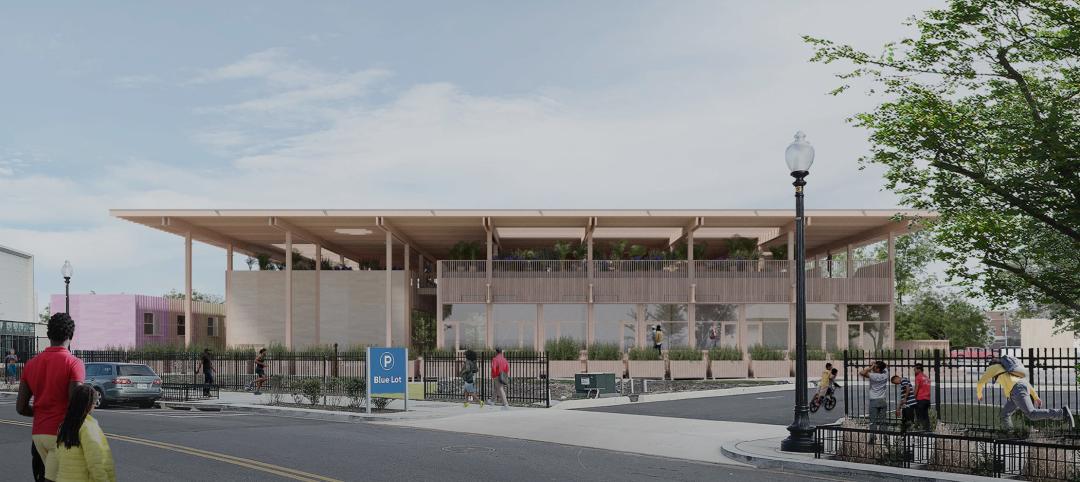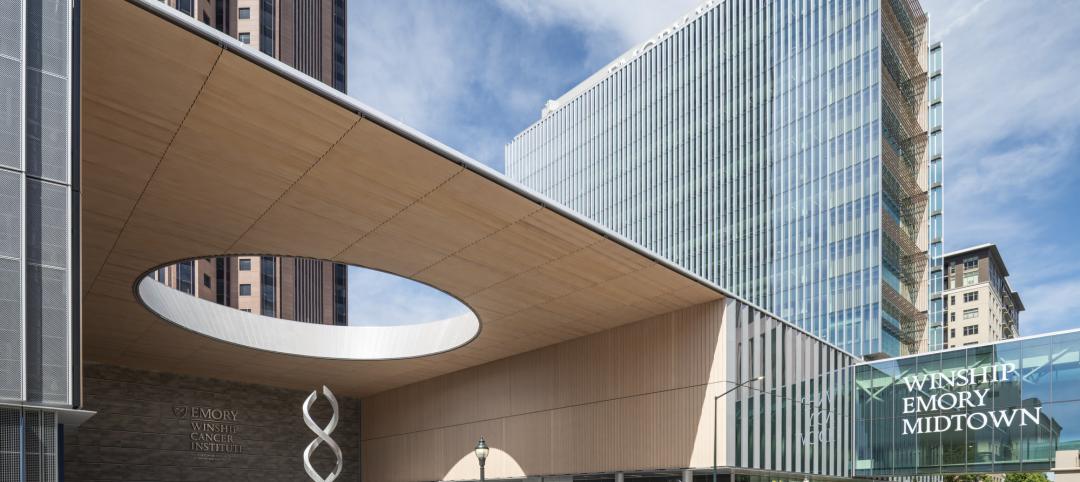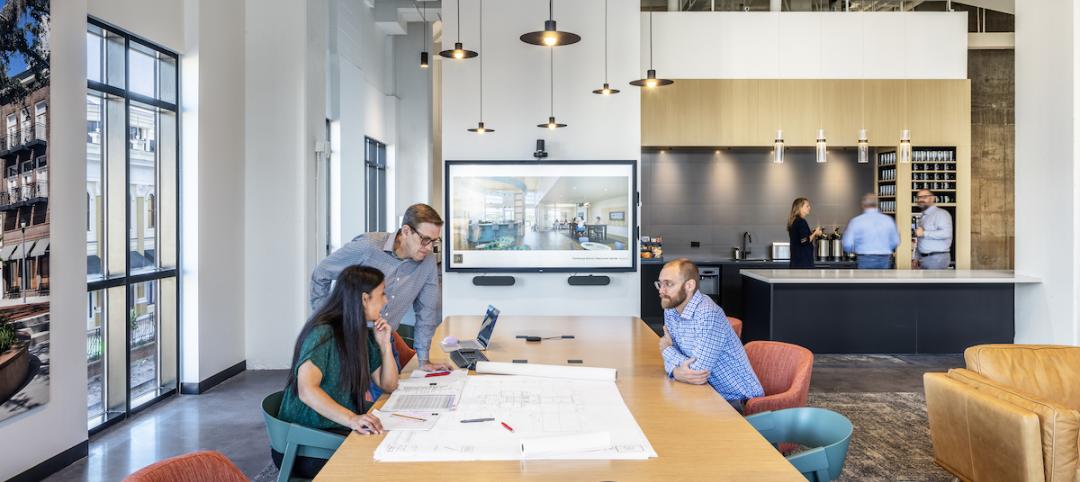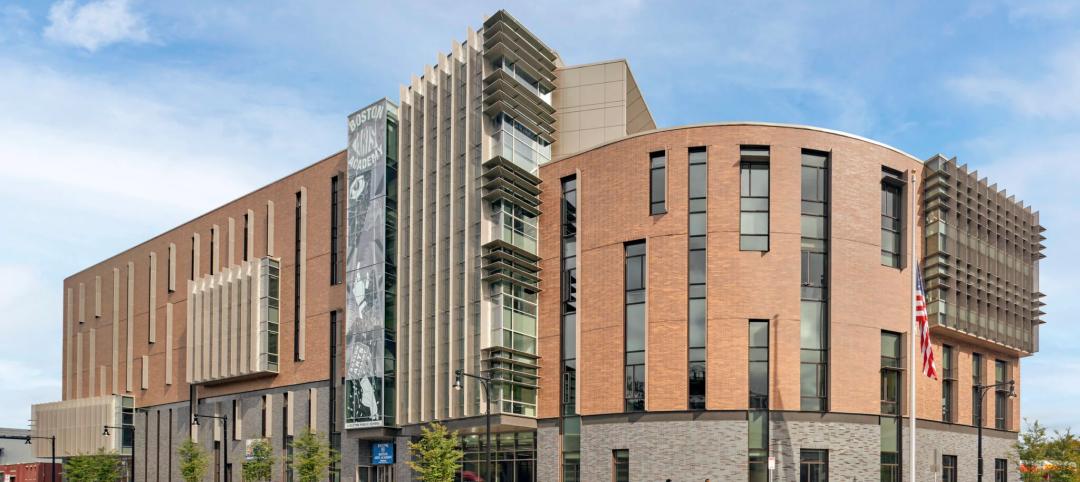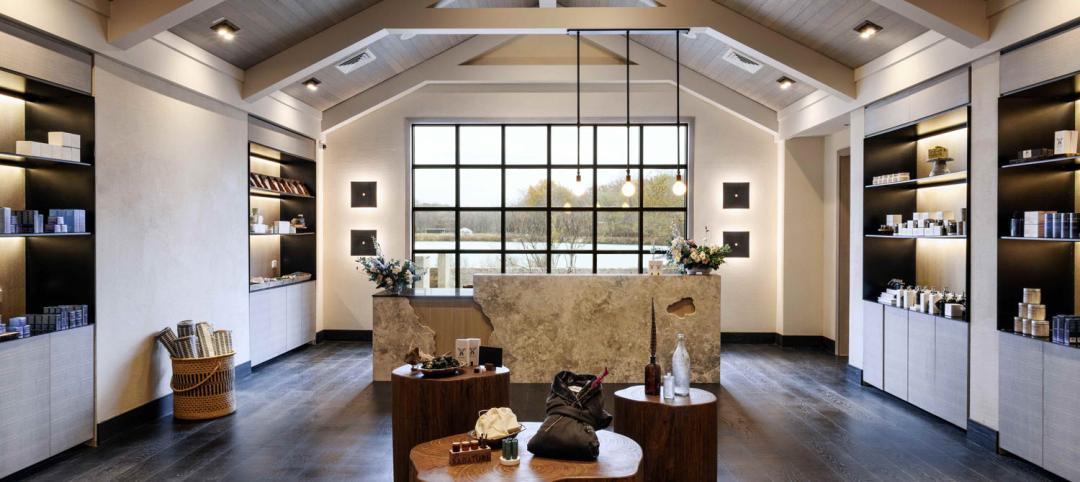Making Veterans Administration healthcare projects “better planned, better delivered” is the new goal of the VA’s Office of Construction and Facilities Management, according to Executive Director Stella S. Fiotes, AIA.
CFM plans, designs, and constructs (with the help of private-sector AEC consultants, of course) all VA projects greater than $10 million in value. The office has responsibility for design construction standards, sustainability, seismic corrections, historic preservation, and physical security.
The VA has a massive portfolio—151 hospitals, 827 community-based outpatient clinics, and 300 veterans’ centers, Fiotes told attendees at the recent American College of Healthcare Architects/AIA Academy of Architecture for Health (ACHA/AAH) Summer Leadership Summit in Chicago. Nearly two-thirds of its facilities are more than 60 years old, and 30% have a historic designation or could qualify for one.Fiotes said the VA is in the midst of a major policy shift, from “figuring out what’s broken and fixing it as much as possible”—a strictly brick-and-mortar approach—to “figuring out what services veterans need and adapting service-delivery models, facilities, and funding distribution to better meet those needs.”
The new policy, known as VA Facilities Management Integrated Planning, is directed at addressing such concerns as the need to right-size facilities based not only on where veterans are today, but where they’ll be in the future, given that many older veterans are expected to move to the warmer regions of the U.S.
Fiotes said the VA is also looking to forge affiliations with public agencies, universities, and healthcare organizations as a way to stretch its capital investment budget. Serving the healthcare needs of veterans in rural areas remains a persistent concern, she said, as does the need for the VA to promote wellness and disease prevention for its clients.
Another major initiative: the Patient-Aligned Care Team. “Primary care is the foundation of VA healthcare delivery,” said Fiotes. PACT is designed to provide “one-stop” patient-centered care through coordinated “teamlets” consisting of a physician, a nurse, an LPN or technician, and a clerk, along with a clinical pharmacist, a dietitian, and a social worker. “No clinics have been designed based on this model, but we’re working on it,” said Fiotes. “We believe they can save 15-20% on costs.”
As for sustainability, Fiotes said all VA projects must earn at least LEED Silver or two Green Globes; every project is evaluated for the feasibility of using renewable energy. Structural resilience, particularly against the threat of rising sea levels or a tsunami, has become a priority as well.
Eight major VA projects—in Las Vegas, Milwaukee, Pittsburgh, San Antonio, San Diego, Cape Coral, Fla., and two in Biloxi, Miss.—will undergo post-occupancy evaluation this fiscal year to determine how well the buildings are meeting the needs of veterans and healthcare providers. Starting in FY 2014, all major projects will experience POEs within 18-24 months of occupancy.
Two innovation programs—selected from over 450 suggestions from Veterans Health Administration employees—are under way: the development of standardized designs for outpatient clinics, and research on making wayfinding in VA facilities consistent across the board.
Fiotes ended her talk to ACHA/AAH attendees on a tempting note: “We have over $6 billion in projects that have been identified and need to be acted on.”
Read our full report from the ACHA/AAH Summit.
Related Stories
Retail Centers | Jun 2, 2023
David Adjaye-designed mass timber structure will be a business incubator for D.C.-area entrepreneurs
Construction was recently completed on The Retail Village at Sycamore & Oak, a 22,000-sf building that will serve as a business incubator for entrepreneurs, including emerging black businesses, in Washington, D.C. The facility, designed by Sir David Adjaye, the architect of the National Museum of African American History and Culture, is expected to attract retail and food concepts that originated in the community.
Mixed-Use | Jun 1, 2023
The Moore Building, a 16-story office and retail development, opens in Nashville’s Music Row district
Named after Elvis Presley’s onetime guitarist, The Moore Building, a 16-story office building with ground-floor retail space, has opened in Nashville’s Music Row district. Developed by Portman and Creed Investment Company and designed by Gresham Smith, The Moore Building offers 236,000 sf of office space and 8,500 sf of ground-floor retail.
Healthcare Facilities | Jun 1, 2023
High-rise cancer center delivers new model for oncology care
Atlanta’s 17-story Winship Cancer Institute at Emory Midtown features two-story communities that organize cancer care into one-stop destinations. Designed by Skidmore, Owings & Merrill (SOM) and May Architecture, the facility includes comprehensive oncology facilities—including inpatient beds, surgical capacity, infusion treatment, outpatient clinics, diagnostic imaging, linear accelerators, and areas for wellness, rehabilitation, and clinical research.
K-12 Schools | May 30, 2023
K-12 school sector trends for 2023
Budgeting and political pressures aside, the K-12 school building sector continues to evolve. Security remains a primary objective, as does offering students more varied career options.
Multifamily Housing | May 30, 2023
Boston’s new stretch code requires new multifamily structures to meet Passive House building requirements
Phius certifications are expected to become more common as states and cities boost green building standards. The City of Boston recently adopted Massachusetts’s so-called opt-in building code, a set of sustainability standards that goes beyond the standard state code.
Architects | May 30, 2023
LRK opens office in Orlando to grow its presence in Florida
LRK, a nationally recognized architectural, planning, and interior design firm, has opened its new office in downtown Orlando, Fla.
Urban Planning | May 25, 2023
4 considerations for increasing biodiversity in construction projects
As climate change is linked with biodiversity depletion, fostering biodiverse landscapes during construction can create benefits beyond the immediate surroundings of the project.
K-12 Schools | May 25, 2023
From net zero to net positive in K-12 schools
Perkins Eastman’s pursuit of healthy, net positive schools goes beyond environmental health; it targets all who work, teach, and learn inside them.
Contractors | May 24, 2023
The average U.S. contractor has 8.9 months worth of construction work in the pipeline, as of April 2023
Contractor backlogs climbed slightly in April, from a seven-month low the previous month, according to Associated Builders and Contractors.
Mass Timber | May 23, 2023
Luxury farm resort uses CLT framing and geothermal system to boost sustainability
Construction was recently completed on a 325-acre luxury farm resort in Franklin, Tenn., that is dedicated to agricultural innovation and sustainable, productive land use. With sustainability a key goal, The Inn and Spa at Southall was built with cross-laminated and heavy timber, and a geothermal variant refrigerant flow (VRF) heating and cooling system.



